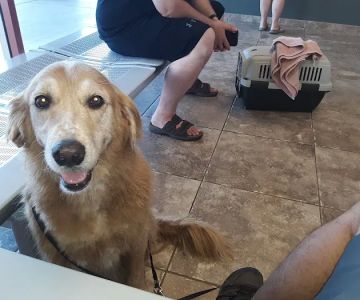Top Pet Care Tips for New Puppy Owners
Bringing a new puppy into your home is an exciting and joyful experience. I remember the first time I brought my puppy home—it was a whirlwind of emotions, excitement, and a little bit of nervousness. Raising a puppy is a rewarding journey, but it requires patience, time, and knowledge to ensure your pup grows up to be a healthy, happy, and well-behaved adult dog. As a first-time puppy owner, there are several things to consider when it comes to caring for your new furry friend. In this guide, I’m sharing the top pet care tips for new puppy owners, based on my personal experience and advice from experts. These tips will help you navigate those first crucial months of puppyhood with confidence.
1. Establish a Routine for Your New Puppy
One of the most important things you can do for your new puppy is to establish a daily routine. Puppies thrive on structure, and knowing what to expect each day will help them feel secure and comfortable in their new home. A consistent routine also helps with house training and behavior development.
Feeding Schedule
Puppies typically need to eat three to four times a day. It's essential to feed them at regular intervals to maintain energy levels and promote healthy digestion. I recommend sticking to the same feeding times each day, which will also help with potty training—since a full belly usually leads to a full bladder!
Exercise and Playtime
Providing your puppy with regular exercise is crucial for both their physical and mental well-being. Daily walks, playtime, and a safe space to run around will help them burn off energy. Don’t forget to include time for play, which helps strengthen the bond between you and your puppy.
Sleep Schedule
Just like humans, puppies need plenty of sleep to grow and stay healthy. Make sure they have a cozy, quiet place to nap throughout the day. At first, your puppy will likely sleep a lot—this is completely normal. As they get older, they may sleep for longer stretches at night and be more active during the day.
2. Health Care: Vet Visits, Vaccinations, and Parasite Prevention
Ensuring your puppy stays healthy is one of your most important responsibilities as a new puppy owner. Regular vet visits, vaccinations, and parasite prevention are essential parts of maintaining your puppy’s health.
Vet Visits and Vaccinations
Your puppy should see a vet for their first checkup soon after bringing them home. During this visit, the vet will provide important vaccinations and discuss a schedule for upcoming shots. These vaccinations are crucial in protecting your puppy from diseases like parvovirus, distemper, and rabies. Your vet will also check your puppy’s overall health and provide advice on diet, growth, and development.
Parasite Prevention
Fleas, ticks, and worms are common issues for puppies, so it’s essential to start a parasite prevention program early on. There are many treatments available, such as flea and tick preventatives, deworming medications, and heartworm prevention. Be sure to follow your vet’s recommendations for the best products based on your puppy’s breed and environment.
3. Puppy Training: Socialization, Basic Commands, and Potty Training
Training is a critical part of raising a well-behaved puppy. Getting started with training early will set your puppy up for success, and it can also prevent unwanted behaviors from developing. I found that patience and consistency were key when training my puppy, and the earlier you start, the easier it will be for your puppy to learn good habits.
Socialization
One of the first things I focused on with my puppy was socialization. Socializing your puppy early on helps them develop confidence and become well-adjusted adults. Expose your puppy to different people, animals, environments, and situations in a positive and controlled manner. The more experiences they have, the less likely they are to become fearful or aggressive in new situations as they grow.
Basic Commands
Training your puppy to follow basic commands like "sit," "stay," "come," and "down" will make your life a lot easier in the long run. Use positive reinforcement techniques, such as treats and praise, to encourage good behavior. I found that short, frequent training sessions were most effective for keeping my puppy engaged and learning. Consistency is key—practice these commands daily, and your puppy will catch on quickly.
Potty Training
Potty training can be one of the most challenging aspects of owning a new puppy, but with patience and consistency, it’s manageable. I remember how frustrating it was when my puppy had accidents, but by taking them outside regularly (especially after meals and naps), using a consistent command like "Go potty," and praising them when they did their business outside, they quickly learned. Crate training is also a helpful tool in potty training, as dogs naturally avoid soiling their sleeping area.
4. Proper Nutrition for Your Puppy
Feeding your puppy the right food is essential to their growth and development. Puppies have different nutritional needs than adult dogs, so it’s important to provide them with a diet specifically formulated for their age and size. I learned that the best way to ensure my puppy was getting the right nutrients was to follow my vet’s advice and choose a high-quality puppy food brand.
Choosing the Right Puppy Food
When selecting a food for your puppy, look for a product that is labeled for "puppy" or "growth" stages. These foods are designed to meet the increased energy and nutrient requirements of growing dogs. Whether you choose dry kibble, wet food, or a combination, be sure to select a balanced diet that includes high-quality protein, fat, vitamins, and minerals.
How Much to Feed Your Puppy
The amount you should feed your puppy depends on their age, breed, and activity level. Most puppy food brands provide guidelines on the packaging, but it’s best to consult your vet for specific recommendations based on your puppy’s needs. Overfeeding can lead to obesity, while underfeeding can affect your puppy’s growth and development.
5. Grooming and Bathing Your Puppy
Grooming is an important part of puppy care that many new owners overlook. Regular grooming helps keep your puppy’s coat clean, healthy, and free of mats. It’s also a great way to check for skin issues, ticks, or other health concerns.
Bathing Your Puppy
Bathing your puppy is an essential part of grooming. However, puppies don’t need frequent baths unless they get dirty or start to smell. Too many baths can dry out their skin. Use a mild puppy shampoo, and be gentle when washing your pup to avoid stressing them out. I found that gradually introducing my puppy to water and bathing helped them get used to the process.
Brushing Your Puppy’s Coat
Regular brushing is also important, especially for long-haired breeds. It helps prevent tangles and mats while keeping your puppy’s coat shiny. Even short-haired puppies benefit from occasional brushing to remove loose hair and keep their skin healthy.
6. Building a Bond with Your New Puppy
One of the best parts of having a new puppy is the bond you’ll form with them over time. Establishing a strong connection early on will help with training, socialization, and overall happiness. Spend quality time with your puppy each day, whether it’s through play, training, or simply snuggling. I found that the more time I spent with my puppy, the more trusting and affectionate they became.
Be patient, as building a strong relationship with your puppy takes time. Positive interactions and gentle care will help your puppy feel secure and loved, setting the foundation for a lasting bond throughout their life.











